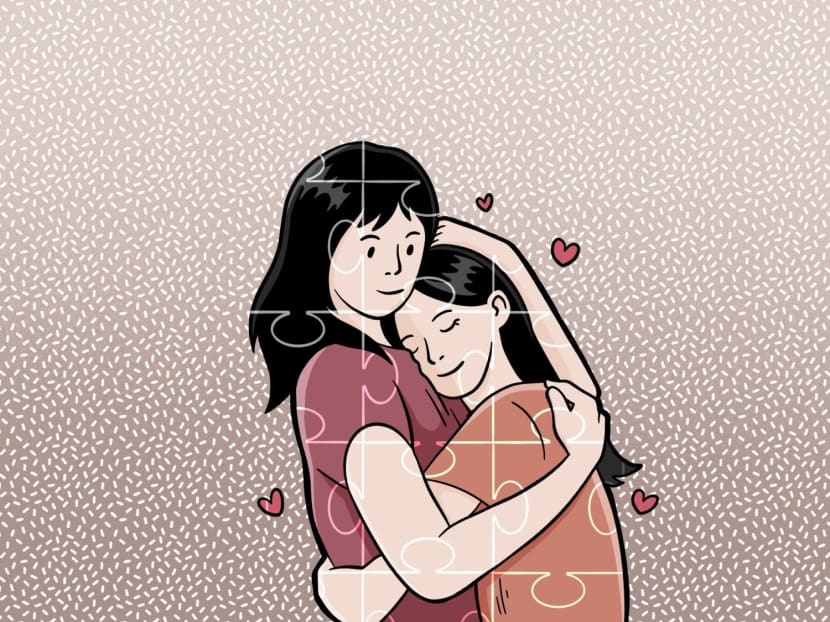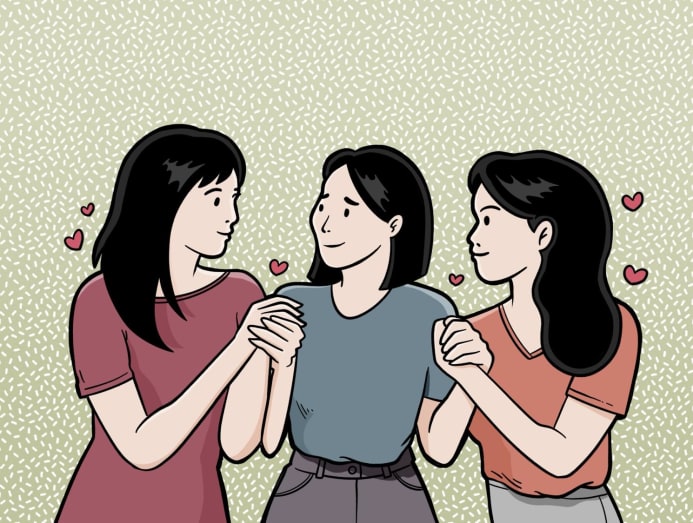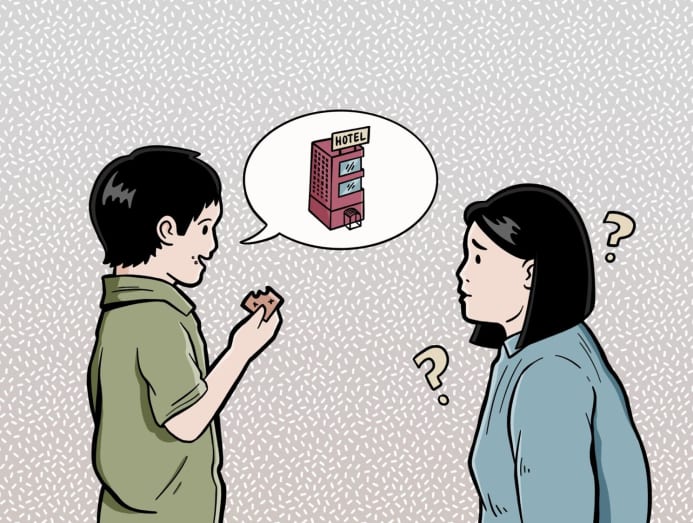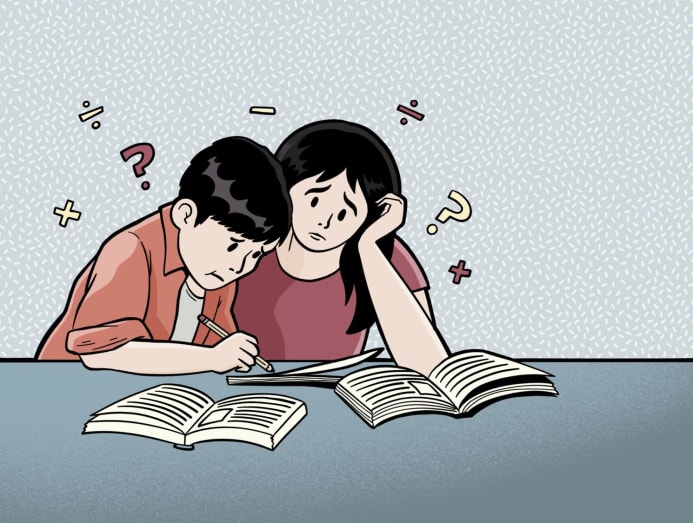These parents are neurodivergent, and so are their kids. The trials are endless but so are the joys, they say

Neurodivergent parents TODAY spoke to said that sharing a diagnosis with their child helps them relate better to their child's struggles.
SINGAPORE — The early days of motherhood are intense for any parent, but when Ms Andrea Koh gave birth to her son in 2017, the experience felt so overwhelming that she found herself making mistakes even when doing simple tasks.
“I would heat breast milk for my son, but then forget about it while changing his diaper, only to berate myself later,” said the 36-year-old programme manager at Unlocking ADHD, an organisation that offers support to individuals with attention-deficit hyperactivity disorder and their families.
It was only years later, in 2020, when she was diagnosed with ADHD that she could understand in hindsight why she struggled so much.
“It made me feel so relieved because, finally, everything in my life made sense,” she said.
Aside from explaining why she found those early days of motherhood so confounding, her diagnosis helped her understand why she was often clumsy and why throughout her life, she has often lost items such as her bus card, wallet, homework and phone.
Last year, her son, too, was diagnosed with ADHD as well as autism spectrum disorder (ASD). Watching him grow, she realises that he exhibits many of the same traits she did as a child — they are both "oddballs" who hyperfocus on their interests but “struggle with some routine tasks”, she said.
Of course, parenting a neurodivergent child while being neurodivergent herself is no walk in the park, but Ms Koh said that there is a good side to all this—she feels she can better relate to and support her son and help him accept his unique strengths and weaknesses.
"Growing up, I felt pressured to fit in and not be a problem to anybody, so now, I hope I can help him find his own special place in the world where he can be himself and shine."
This mix of grit and gratitude is familiar to others in her position. TODAY spoke to four neurodivergent parents with neurodivergent children and they described similar situations of intense struggle mixed with heightened empathy for their children.
Neurodivergence is an umbrella term describing people with variations in their mental functions and have conditions such as ADHD, autism spectrum disorder and dyslexia.
Rising numbers of adults are being diagnosed with neurodivergence, including those who are parents, experts said. Official data is not available in Singapore, but TODAY spoke to six clinical psychologists who said that they have seen an increase in the number of adults diagnosed with neurodivergence in the last decade.
Mr Jeremy Tang, principal clinical psychologist at Spectrum Psychology Practice, said that this is primarily due to the increased awareness of neurodivergent conditions and the general reduction of stigma associated with them.

A LATE DISCOVERY THROUGH HER CHILD
One of the most common ways that parents discover their neurodivergence is when their child is diagnosed, and they then start to notice shared traits.
Ms Moonlake Lee, founder and director of Unlocking ADHD, was diagnosed with ADHD five years ago, a year after her older daughter was diagnosed.
“It is a double whammy as we have to manage our own challenges while also trying to be put together to support our child,” the 55-year-old said.
“One of the struggles as an ADHDer is that we are consistently inconsistent; being a parent means that you have to be consistent in your parenting approach, such as implementing discipline and so forth."
Ms Lee said that she frequently loses steam or abandons efforts to establish “reward charts” or new routines.
Another common trait of ADHD is hyperfocus, where an individual becomes intensely absorbed in a single task or activity, often to the point of losing track of time and ignoring everything else around them.
“The effect of me hyperfocusing on a work project (such as with Unlocking ADHD) is that I end up not having time for my family, or I end up making mistakes in my planning,” Ms Lee said.
She recalled a time when she was particularly busy at work, but was supposed to book travel tickets for her daughters. She ended up having to book her daughters on different return flights because she was so focused on her work that she “forgot the details” of their trip.
“A neurodivergent parent is dealing with intense emotions and sometimes executive function issues,” Ms Lee added. “These combined together make it harder to manage daily life, responsibilities and relationships.”
BRAINS THAT ARE WIRED DIFFERENTLY
Another neurodivergent parent, Jane, said that communication breakdowns are common. She declined to reveal her real name because she has not told others about her diagnosis.
She was diagnosed with dyslexia in 2016, when she was 30 years old and her son was eight. By that time, her son had already been diagnosed with ADHD, dyslexia, and high-functioning sensory processing disorder.
She said that she finds it difficult to understand her son sometimes. Once, he started talking about a “red building” and she could not piece together what he was trying to tell her.
Eventually, she realised that her son was referring to a hotel where they had stayed while on holiday.
"People say that since you both have dyslexia, you can sync up or understand each other better. Actually, it's worse," Jane said. "I have my way of thinking and he has his own way of thinking."

For another parent, Emma, who is in her 40s, said that she had to gradually learn that her needs were different from her daughter’s. She also did not want to reveal her real name because she has not told others about her condition.
Emma self-identifies as autistic and has ADHD, while her daughter, 19, is autistic with learning difficulties.
“Her triggers can be my regulators, and vice versa,” she said. For example, her daughter thrives on routine while Emma thrives on change.
“That’s what a neurodivergent family is like. There can be an entire array of needs that can clash, but it's also how we learn to have strategies to cope, so that we respect each other’s needs through understanding.”
HEALING AND GROWING TOGETHER
Although the challenges are tough, these parents said that sharing similar conditions as their child also helps them to relate better to their child's struggles.
Jane's own diagnosis helped her understand why she found it so difficult to help her son with his science homework and the problem sums in his mathematics exercises.
“I didn't know you could be affected by something like (dyslexia) even in adulthood,” Jane said, adding that her diagnosis helped her understand herself and connect with her son better.
For example, she can appreciate why her son had such an aversion to reading, so she does not chide him for it.
"The words move," Jane said, describing how it feels like for dyslexic patients when they try to read.
Ms Koh felt a mix of relief and grief upon receiving her ADHD diagnosis.
“I knew how much undiagnosed ADHD had affected various parts of my life, from studies to relationships, so it made me feel grief about the lost opportunities while fearing that my son would go through the same pain that I did.”
Despite this initial grief, she now views her role as an ADHD parent with “purpose and motivation”.
“Now, when my son faces similar comments (that I used to), I can help him understand what's going on and how to handle them,” she said. “It's like healing my inner child while watching my child grow.”
A particularly heartwarming moment came when her son received a note from a peer thanking him for being kind, easing her fears that his ADHD and autism might hinder his social development.

Emma said that her autistic traits, particularly her hyper-attention to detail, are strengths that have made her a better parent. Once her daughter was diagnosed, she threw herself into the books and learnt everything she could about autism and neurology.
And because she thrives on change, she found it easy to keep changing her approach towards parenting her daughter, modifying interventions to figure out what would work best.
BEING NEURODIVERGENT IN A NEUROTYPICAL WORLD
Ms Koh said that even though there is a growing conversation about neurodivergence in Singapore, there still needs to be a greater understanding among broader society.
Emma agreed, saying: “Honestly, I really don’t feel parenting is stressful. What’s stressful is managing society’s stigmas and ignorance and communicating to help others understand what true inclusion means."
Many neurodivergent parents in Singapore have no access to resources to realise that they are neurodivergent themselves, she added.
Experts agreed that even though there are many resources for neurodivergent children, there is a lack of support for neurodivergent parents.
Ms Liew Shi Min, director and clinical psychologist of Heartscape Psychology clinic, said: “Beyond support groups and networks, which are scarce, there are no specific services tailored to meet the needs of neurodivergent parents."
Clinical psychologist Nyein Nyein from Zenith Clinic said that neurodivergent parents’ concerns are often dismissed as them just being anxious and they are often told that they just need to manage their anxiety.
Agreeing, Ms Ooi Sze Jin, founder and psychologist of counselling practice A Kind Place, said: “Many therapists are familiar with working with children with ADHD and ASD, but not many are trained in working with adults with either diagnosis.”
Ms Liew said that improving the screening processes and even public education about neurodivergence can facilitate early detection and diagnosis.
“While one of the prevailing misconceptions of neurodivergence is to see it solely as a disability or a superpower, I believe it's a spectrum encompassing both challenges and extraordinary strengths,” Ms Koh said.
“The journey to understanding and accommodating neurodivergence is ongoing, but we are definitely moving towards a positive future.”








